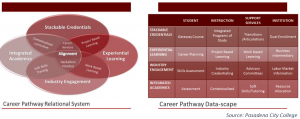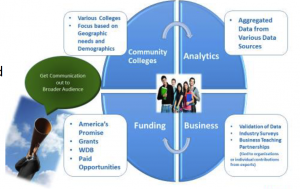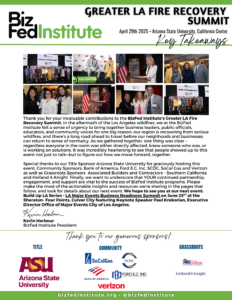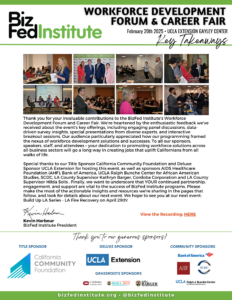
Hitting Reset on Public Education for Workforce Readiness Synopsis
Los Angeles Trade-Technical College – Friday, September 30, 2016
Thank you to our generous sponsors: City National Bank, California State University Dominguez Hills, Pasadena City College, Los Angeles Trade-Technical College, and Randy Witt Productions.
You can experience the BizFed Institute’s NextUp Economic Forum: Hitting Reset on Public Education for Workforce Readiness in its entirely online via YouTube. Please click any of the following links for the segment you wish to view or view full playlist here:
- Introduction
- Panel 1: Preparing High School Students for Career & Higher Education
- Panel 1: Q & A
- Panel 2: Community Colleges Meeting Industry Needs
- Panel 2: Q & A
- Panel 3: Improving the ROI for Higher Education
- Panel 3: Q & A and Closing
To view full slideshow, click here.
To view Speakers’ full bios, click here.
Panel 1: Preparing High School Students for Career & Higher Education
Speakers:
Lefty Lefkowith, Louisiana Department of Education
Leslie Littman, California Teachers Association
Richard Martinez, Pomona Unified School District
Marco Petruzzi, Green Dot Public Schools
Highlights:
Link curriculum with specific career pathway.
More high school career-technical coursesLink curriculum with specific career pathway.
Business and education partnerships exists, but both sides can do more.
Educate the educators, but need to consider their time and financial investment when developing training.
Industry professionals jointly teaching in classes are needed, but not easy to implement widely.
Funding is lacking or declining.
Not enough affordable/workforce housing and reform justice system for low-level crimes.
Teacher shortage and need to improve perception on teaching as a career.
Not enough affordable/workforce housing and reform justice system for low-level crimes.
Teacher shortage and need to improve perception on teaching as a career.
Panel 2:Â Community Colleges Meeting Industry Needs
Speakers:
Leticia Barajas, Vice President of Academic Affairs, LATTC
Salomon Davila, Pasadena City College
Ilse Metchek, California Fashion Association
Ron Miller, LA/OC Building & Construction Trades Council
Richard Verches, LA County Workforce Development Board
Genine Wilson, Kelly Services
Highlights:
Half a billion to a billion dollars being invested into workforce development programs that connect students with businesses in LA County.
Difficult to find people who have soft skills, such as communications skills, working hard, etc.
Partnerships and well-defined plans are needed for career pathway programs to happen and be successful.
Proactive outreach by businesses to seek partnership is key – not a beneficiary only – especially in defining needs and skill sets, but educators need to be at the planning table with businesses earlier too.
Curriculum and teachers need to reflect what’s the latest in various industries, especially with changes happening at a fast pace.
Teachers can understand application of concepts through externships or having industry professional integrated into curriculum.
Labor market data is key.
Articulate the benefits of hiring students from community college, especially since community colleges can fill mid-level positions and two-year programs have specialized and dedicated curriculum.
Panel 3: Improving the ROI for Higher Education
Speakers:
Brian Calle, Southern California News Group
Rosalyn Coller, Pelican Products
Willie Hagan, California State University of Dominguez Hills
Dianne Harrison, California State University of Northridge
Rachell Morris, ZGF Architects LLP
Roger Torneden, UCLA Extension
Highlights:
Partnerships are critical.
Real world skills are lacking.
In addition to technology, pedagogy is changing too with dynamic engagement with students, including hands-on, and problem-based learning as well as gaming, virtual reality, etc.
Focus curriculum on small businesses since 90% of employees in LA County work for businesses with fewer than 90 employees and over 50% work for companies with fewer than 50 employees.
Businesses can improve availability of internships/apprenticeships, especially in scaling opportunities for more students to utilize, but ongoing training and mentorship are important as well to shape employees.
Advisory boards with small businesses represented are key for input on curriculum.
Educators should be vocal in asking for help and reminding businesses that they are producing the desired workforce.







